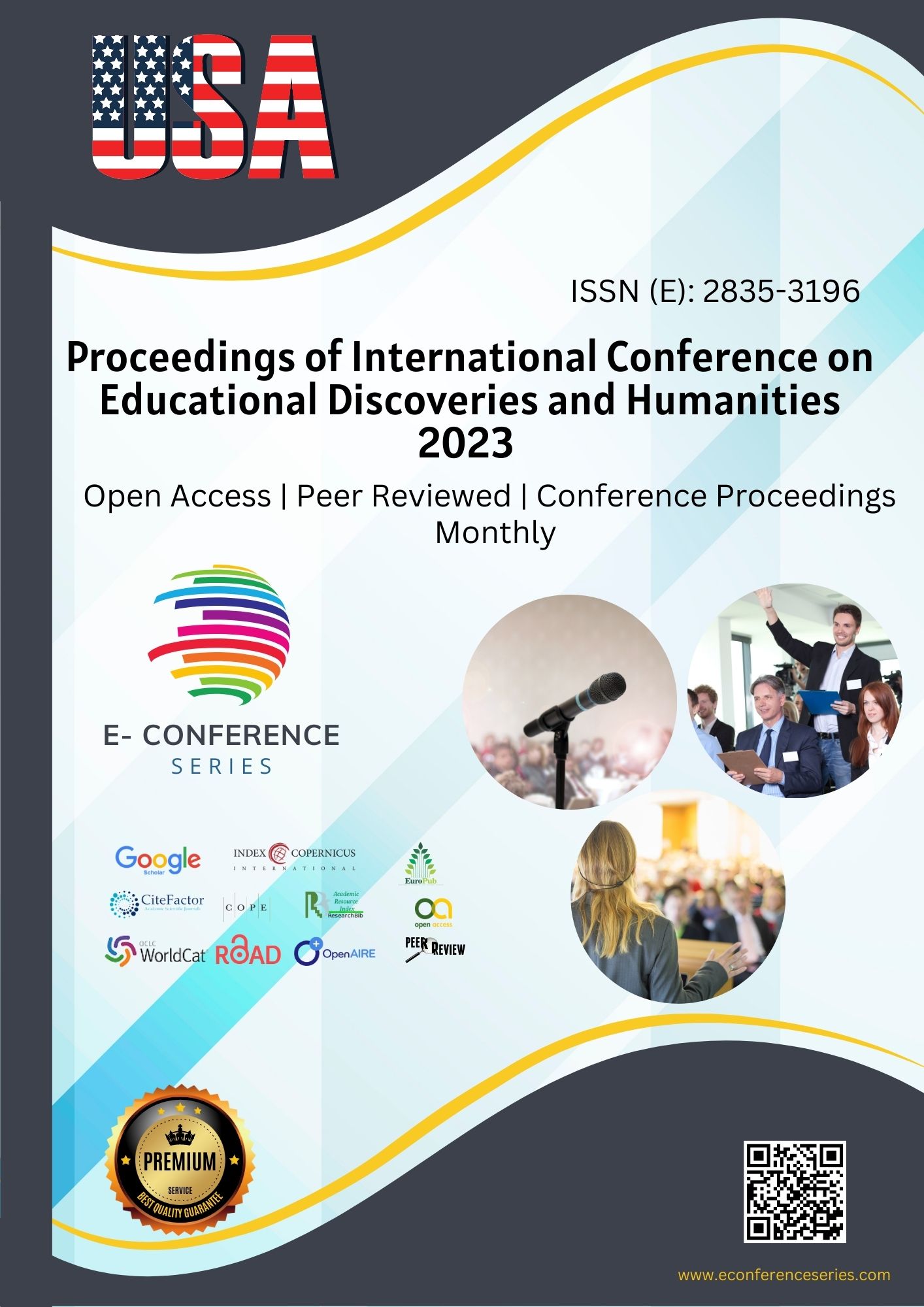OLIY TA’LIM MUASSASALARIDA TA’LIM SIFATINI NAZORAT QILISH VA BAHOLASHNING NORAVSHAN (FUZZY) TO‘PLAMLARI NAZARIYASIGA ASOSLANGAN MODELLARI VA MEXANIZMLARI
Keywords:
Ta'lim sifati, nazorat qilish, baholash, noravshan (fuzzy) to'plamlar, modellar, mexanizmlar.Abstract
Oliy ta'lim muassasalarida ta'lim sifatini nazorat qilish va baholashning fuzzy to'plamlari nazariyasiga asoslangan modellari va mexanizmlari mavzusidagi maqolada, ta'lim sifatini nazorat qilish va baholashning muhimligi haqida gapiriladi. Fuzzy to'plamlar nazariyasiga asoslangan modellar va mexanizmlar, ta'lim sifatini baholashda muammolarni hal qilishda yordam beradi.
References
Zadeh, L. A. (1965). Fuzzy sets. Information and control, 8(3), 338-353.
Mamdani, E. H., & Assilian, S. (1975). An experiment in linguistic synthesis with a fuzzy logic controller. International Journal of Man-Machine Studies, 7(1), 1-13.
Wang, L. X. (1997). A course in fuzzy systems and control (Vol. 25). Prentice Hall PTR.
Klir, G. J., & Yuan, B. (1995). Fuzzy sets and fuzzy logic: Theory and applications (Vol. 4). Prentice Hall.
Kim, S. H., & Choi, J. Y. (2011). Design of a fuzzy evaluation model for school education. Expert Systems with Applications, 38(1), 169-177.
Lee, C. H., & Kim, H. J. (2017). Fuzzy evaluation model for effective school management. Sustainability, 9(11), 1966.
Li, L., & Li, D. (2019). Design of a Fuzzy Evaluation Model of Teaching Quality for High School Chemistry Teachers. In Proceedings of the 2019 2nd International Conference on Education Technology Management (pp. 237-240).
Pourahmad, A., & Tavakoli, M. (2016). A fuzzy decision-making model for evaluating educational departments based on student preferences. The International Journal of Management Education, 14(3), 308-318.
Nasrollahi, M. R., & Tavakkoli-Moghaddam, R. (2017). A novel fuzzy DEA model for evaluating the efficiency of universities in the presence of undesirable outputs. Scientometrics, 113(2), 767-785.
Zhu, B., Li, X., Wang, L., & Li, B. (2015). A fuzzy comprehensive evaluation model of the teaching quality of MOOC based on cloud platform. Educational Technology Research and Development, 63(5), 741-756.
Şahin, Ş., & Demir, Ö. (2019). A fuzzy logic-based model for evaluating the academic performance of departments in higher education institutions. International Journal of Intelligent Systems, 34(6), 1046-1062.
Huang, C. C., & Chen, L. H. (2011). Applying fuzzy logic to evaluate the quality of university websites. Journal of Computer Science and Technology, 26(5), 778-788.
Li, Y. Y., Li, Y. H., Li, Y., & Li, Y. (2016). Fuzzy evaluation model for the quality of undergraduate education in the course of engineering mechanics. Journal of Higher Education, 10, 036.
Chen, W., Sun, J., & Chang, B. (2017). Fuzzy comprehensive evaluation model for education management in Chinese higher vocational colleges. Eurasia Journal of Mathematics, Science and Technology Education, 13(8), 4977-4989.
Jin, S., & Zhou, X. (2013). Fuzzy comprehensive evaluation model for teachers’ innovative education ability based on principal component analysis. Journal of Physics: Conference Series, 423(1), 012028.
Downloads
Published
Issue
Section
License

This work is licensed under a Creative Commons Attribution-NonCommercial 4.0 International License.








